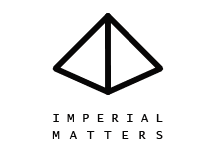VART # 2 / / Tingting Wei
Read first part of essay here.
VART follows two major lineages colluding into one.
The first lineage follows the historical pop movement: pointing-as-art (championed by Duchamp), celebrity-as-art (championed by Andy Warhol), consumption-as-art (championed by Jeff Koons), and relations-as-art (championed by Nicolas Bourriaud).
The second lineage follows the internet. Dialogue around how the internet has changed the way artists view themselves and make art is ongoing, summarized by Rhizome as: “Post internet, post media, post media aesthetics, radicant art, dispersion, formatting, meme art, circulationism—all recent terms to describe networked art that does not use the internet as its sole platform, but instead as a crucial nexus around which to research, transmit, assemble, and present data, online and offline,” and in which both art and artist are more ‘fluid, elastic, and dispersed.’”
The first lineage is important because we see how conceptual twists set up by Duchamp, Warhol & co. recuperated anti-art as art. We see how art fell again and again from its pedestal and resuscitated so that it may, in the fashion of a phoenix, rebirth—each time a little different from last. Relational Aesthetics, which VART borrows heavily from, depends on “the virtual relationships of the Internet and globalization, which…have inspired artists to adopt a do-it-yourself (DIY) approach and model their own ‘possible universes’.” VART loves virtual relationships gathered in virtual universes—in other words, VART loves microtopias.
This leads us to the second lineage, the internet, which helps move image dissemination away from traditional rigid models and into arguably more democratic ones [3]. Generous with space and cost-effective, the internet is also responsible for meme culture, where ubiquity rather than scarcity is the reigning cultural value meter. And perhaps most importantly, the internet is responsible for the technological society that prizes novelty, one predicated by the progressivist notion that reality must be constantly updated.
[3] Some argue that b/c the early internet was heavily influenced by US politics that it is essentially a state tool.

